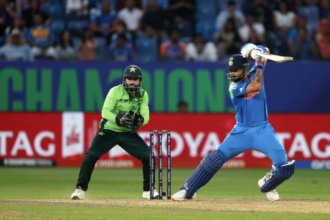What Happened in Koh Phangan?
Son of well-known Spanish actor Rodolfo Sancho Aguirre, Daniel Sancho Bronchalo, has been condemned to life in jail for the gruesome murder and mutilation of Colombian cosmetic surgeon Edwin Arrieta Arteaga. The crime occurred on Koh Phangan, a southern Thai island noted for its peaceful beauty and quiet way of life. Both Thailand and Spain have paid close attention to the issue, which resulted in a well-publicized trial covered extensively by the media.
After confessing to murdering Arrieta and later dissection of his body, Sancho, 30, was found guilty. Early August 2023’s occurrence has been regarded as both surprising and terrible. Media sources have closely tracked Sancho’s conduct and the events surrounding the crime to emphasize the tremendous public interest and the broader consequences of the case.
How Did Sancho Defend His Actions?
Sancho offered a defense throughout the trial, and he acted in self-defense. Saying he was a “hostage” to Arrieta, he told the plastic surgeon obsessed on him nonstop. Sancho said, trying to explain his strong response, “I was a hostage to Arrieta.” Arrieta was reportedly killed in what he described as a desperate effort of self-preservation after making unwelcome sexual approaches and trying to push him into a sexual encounter.
Sancho’s defense contended that the murder was a reaction to a violent and dangerous circumstance rather than planned. The court decided Sancho was guilty of planned murder, concealment of a corpse, and property destruction, notwithstanding these claims. The evidence—including Sancho’s purchases of a knife, rubber gloves, and a cleaning agent—suggested that the crime was planned rather than an automatic self-defense action.
What Was the Outcome of the Court Proceedings?
Conducted on the adjacent island of Koh Samui, the court procedures first sentenced Sancho to death. Later on, though, this choice was turned into life in jail. Sancho’s cooperation during the trial—including his admission of guilt and his help in tracking the thrown-off body parts—was credited with the sentence drop.
Apart from life in jail, the court said Sancho should reimburse Arrieta’s family 4 million baht (about $118,000; £89,000). This payback was meant to be some atonement for the crime-related misery. “The plaintiff is satisfied with the sentence because he (Sancho) will be put in prison for life, and they (the plaintiff) receive some financial compensation,” a lawyer for Arrieta’s family said in expressing pleasure with the court’s ruling.
How Was the Crime Discovered and Investigated?
When pieces of Arrieta’s dismembered body were found in a dump in Koh Phangan, the graphic elements of the murder became clear. This information came about soon after Sancho claimed Arrieta had vanished. Soon after Sancho’s report, authorities started to show mistrust of it and started a comprehensive inquiry.
When authorities finally questioned Sancho, he admitted to the crime. According to the inquiry, he had bought a range of goods, including rubber gloves and a knife, that showed the crime was planned. Later, he led cops to many points around the island where he had thrown the corpse in plastic bags. This careful disposal of the evidence suggested even more the planned character of the crime.
What Is Sancho's Background and What Has Been the Aftermath?
Sancho’s history as a chef and his relationship with a well-known performing family have given the matter further intricacy. His grandpa was the late actor Félix Ángel Sancho Gracia; Silvia Bronchalo, his mother, is an actress. Media coverage and examination of this familial link have increased as many people question how someone from such a background could engage in such a horrible deed.
Sancho and Arrieta set up the deadly encounter by meeting online and personally. The defense’s assertion of self-defense has drawn much discussion and controversy. Notwithstanding the defense’s claims, the court decided based on Sancho’s behavior, and Sancho received a harsh and long-term punishment.
Reflecting more general society’s worries about violence and justice, the case has spurred much debate on the limits of self-defense and the nature of planned murder. The story remains a moving reminder of the complicated interaction between human circumstances and the law even as Sancho starts his life term.








